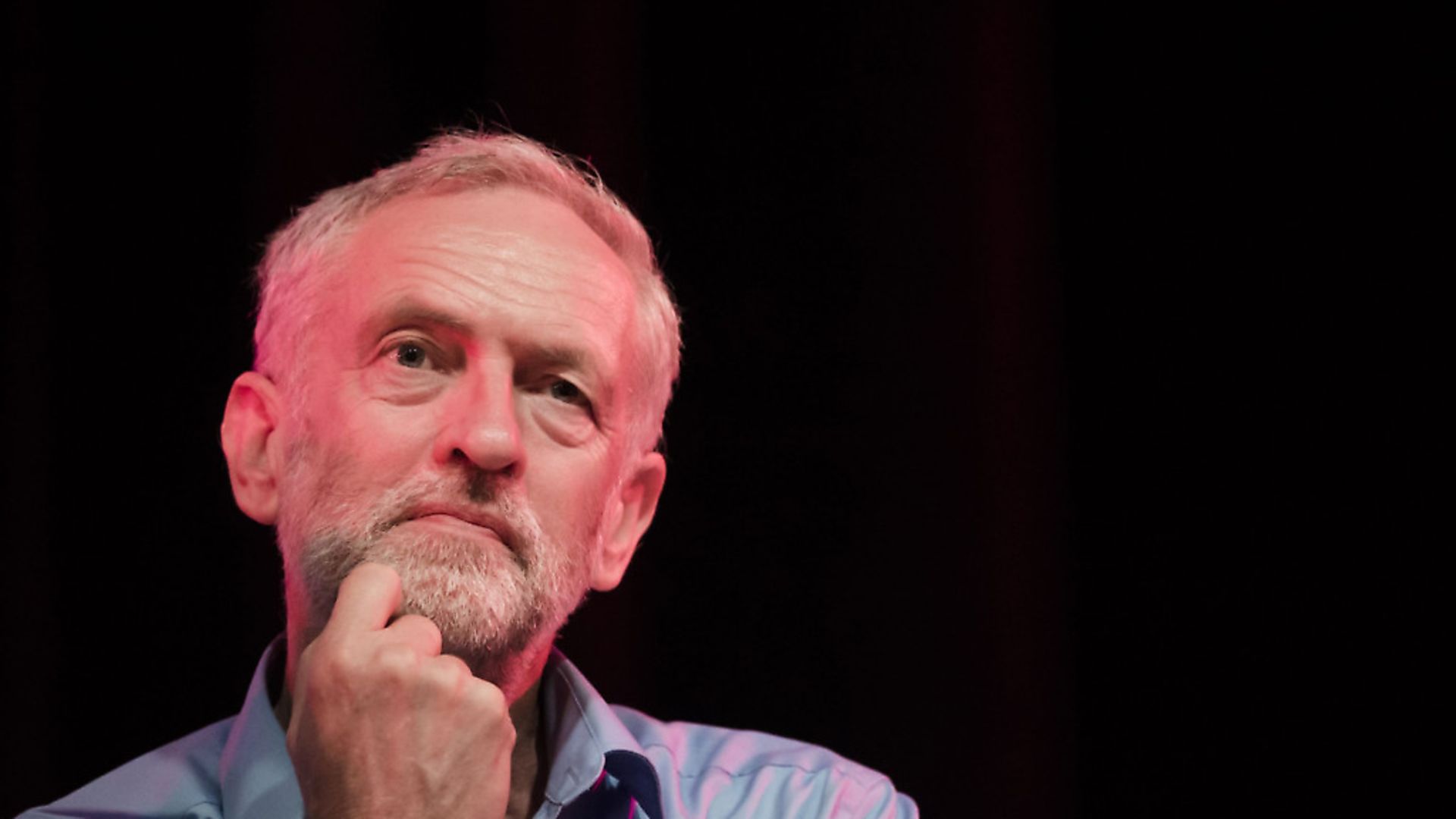
Jeremy Corbyn is meant to be a break from Labour’s recent past, but he risks making the same mistakes as Tony Blair and Ed Miliband, says ZOE WILLIAMS.
Jeremy Corbyn’s Brexit has been defined by ambiguity – when he was campaigning to Remain, did he mean it? When he embraced the result, what was that, exactly? Re-connecting with the heartlands? Respecting democracy? Doing what everybody else was doing? (This last is the least likely: if he has proven anything at all, it’s a willingness to go out on a limb).
When he said he was anti-single market but pro-jobs, what did that mean? For a long time, the ambiguity looked strategic; the most important thing was to maximise Tory discomfort, and for that you needed agility, not certainty; attack lines, not red lines; when you’re trying to destroy someone else’s plan, the last thing you need is a plan of your own.
Recently, however, the Labour line has hardened, albeit without taking shape. Corbyn is now set against freedom of movement, and convinced that immigrants are driving down wages. The case for Remain is, for the Labour leadership, now firmly in Chuka Umunna and Peter Mandelson territory, belonging to the people who hate change, distrust radicalism, want things back the way they were. The single market is for suckers who want to be ruled by technocrats, and the customs union is just a detail. He’s making, as improbable as it sounds, the Ed Miliband mistake.
These events are all recent, but have been so obliterated by the Conservative chaos that followed that perhaps they need a refresh: David Cameron came to almost-power with an austerity promise. It sounded quite enlivening, in a brisk-run, doughty kind of way: we’d all overspent (even though only a very few of us overspent); and we’d all have to tighten our belts (even though that would mainly affect those already struggling). Rhetorically, it had the appeal of a hike in the Alps after a night on the alcopops, and people voted for it. Thereafter, ‘austerity’ was the will of the people. The Labour Party promised less austerity, and better austerity, and austerity hitting different, more affluent people, but they never questioned the necessity of the programme. Bizarrely, they never questioned its fundamental premise – that the global financial crisis was triggered by Gordon Brown spending too much on SureStart and working family tax credit – so they were never able to rebut its execution.
Instead, they practised the politics of tinkering, whining and pedantry: couldn’t we work these cuts so that disabled people weren’t first in the line of fire? Was the proliferation of food banks part of the plan, because it’s distressing to see so many working constituents queueing at them? What’s the point of benefit sanctions when they cost more to administer than they save? These were all fine arguments, but in the absence of any solid rejection of the underpinning principles, they amounted to ‘like this government, but a little bit less so’. The message wasn’t catastrophic, and nor was their performance in the 2015 election. But it wasn’t a winner, and so, duly, with the election lost and Harriet Harman performing as leader in the interim, Labour followed the Conservatives through the lobby to vote in welfare changes that were not necessary, should never have been made, and have caused untold hardship, not the least of which was to the third and subsequent children of poor families. It is impossible to imagine the Labour MP to whom this represented a policy that was fair, good or wise. Yet they had accepted the frame, and with it, a concept of realism; they had accepted that this was what the people wanted, and from there, their direction was irresistible.
Three questions went unasked, and never mind the nitpicking ones about actual voter numbers: were the people voting for austerity, or were some of them voting for austerity, while others were voting for hugging-a-hoodie, or green-Conservatism, or simply a change? Of those that did vote explicitly for fiscal contraction, did they understand what it would mean? Did they have any idea what the ramifications would be, for people with disabilities, single parents, the low-paid, carers, people with mental illnesses, people with any illnesses? And if they did, how could they have done, when it was never spelt out and had to unfold before any of us understood it? Finally, those people who voted for an economic policy which would have such a seismic impact on their compatriots and, inevitably in some cases, on themselves: were they right?
These are exactly the questions that have been ignored by Labour’s Brexit, for exactly the same reasons: to respect the result has become synonymous with respecting what the people want. Yet there is no such thing as ‘the people’, it is a construct conjured by an argument. Nobody has to accept it. They could just make a different argument.
Recently, Labour outriders – journalist Paul Mason, on Twitter – have started to make the electoral case for their Brexit stance. It’s not unreasonable to be planning for an election, since the battle between two inconceivable opposites – another election so soon after the last one no-one wanted, and the lumbering on of this pained and paralysed government – does seem to be inching, like Ypres, in one direction. Nor is it unreasonable to anticipate and analyse Labour’s route to victory. Yet Mason’s calculation is that Remainers will already vote Labour: therefore, all the play is with the Labour Leavers and the Leavers who were unaligned. This, considering that Labour’s core support is Remain – there are only 20 seats in the country where the Labour vote is more Leave than Remain – is much more like the Blair mistake.
All the voters who were traditionally Labour, who wanted to see properly funded public services, generous and dignified social security provision, human rights, greater equality, they were already his. Like an episode of The Weakest Link, as soon as anyone showed a whiff of progressive spirit, Blair banked them, and went haring after the ones who didn’t. At the start, high-spirited from the sudden change in left-wing fortunes, we all took it as a joke, when he banned beards from his front bench, for fear of looking too socialist; when he made the case for private sector involvement in almost everything, but – cool it, guys – he wasn’t looking for a ‘punch-up’ with any unions.
Steadily, feral youths, bogus asylum seekers and problem families began to stalk his rhetoric; the longer he governed, the more he tailored his worldview and his language to his opponents, not because he wanted to win – he was always winning – but because his supporters didn’t count. It was like an unhappy marriage between the leader and his core vote, nine parts complacency, one part contempt. This is a peculiarly Labour malaise, to think the vote you can rely on is somehow stripped of its lustre. The disillusionment was a slow build, and paradoxical. Labour’s supporters bounced back with the arrival of Corbyn and the restitution of a socialist vision; it was the Blairites who lost all confidence. It’s fascinating, now, to remember the leadership election, portrayed at the time as a fierce contest between Corbyn the dinosaur and Liz Kendall, chief comprehender of the New World. What did she want her modernity to look like? Nobody knew. If it was so modern, how come it made everybody feel so tired?
It has become a truism, now, that Jeremy Corbyn has always been anti-EU, more trenchantly than he ever let on, despising everything it said about globalisation, technocracy and capital. But there is another Corbyn: one who hates fascism and would fight it with all the allies he could find; one who believes in cooperation on the widest possible field; one who reviles racism, cherishes sanctuary and embraces difference; one who’s an environmentalist and knows its answers have no borders; one who would never sacrifice people’s jobs on a formless principle; one who genuinely respects his younger supporters, not for the votes they yield but on the broadest possible principles of equality, and a more elemental question still, what’s the point of politics if not to make life better for the generation to come?
There is a Labour leader under there who would be passionately Remain, not to maximise his advantage over the conservatives or to revel in their disarray, but because that – on balance, with obvious caveats – is the best route to what he wants: redistributed prosperity, unfettered opportunity, collective humanitarianism and a reawakened socialist project that takes courage from its fecundity across a continent. He just needs to dodge the pitfalls that beset his predecessors and show his face.
Warning: Illegal string offset 'link_id' in /mnt/storage/stage/www/wp-includes/bookmark.php on line 357
Notice: Trying to get property 'link_id' of non-object in /mnt/storage/stage/www/wp-includes/bookmark.php on line 37







